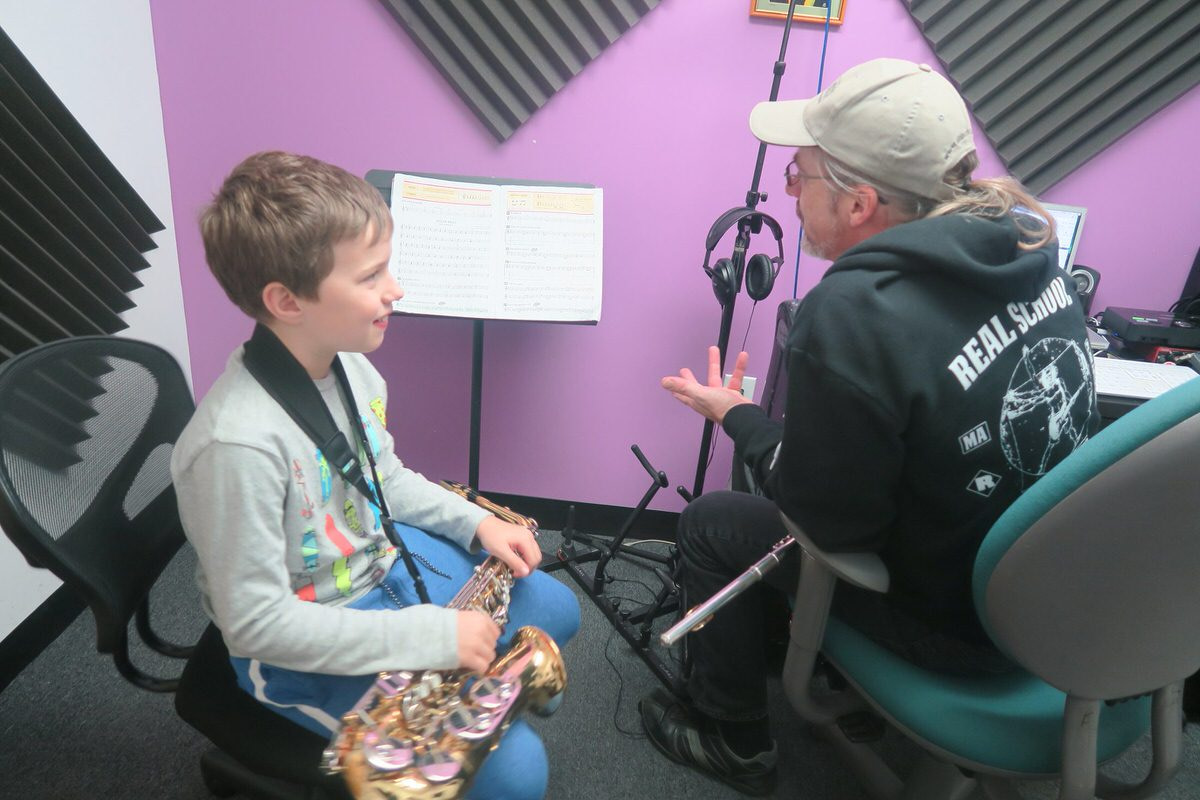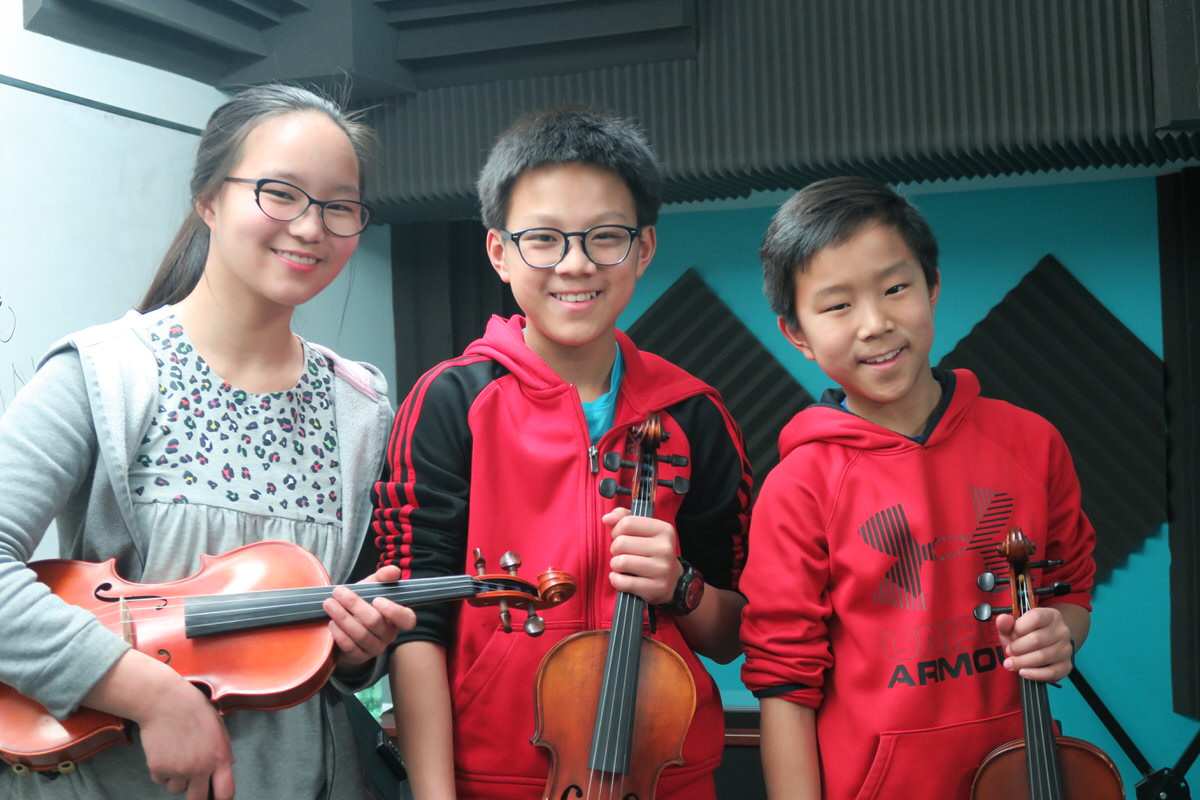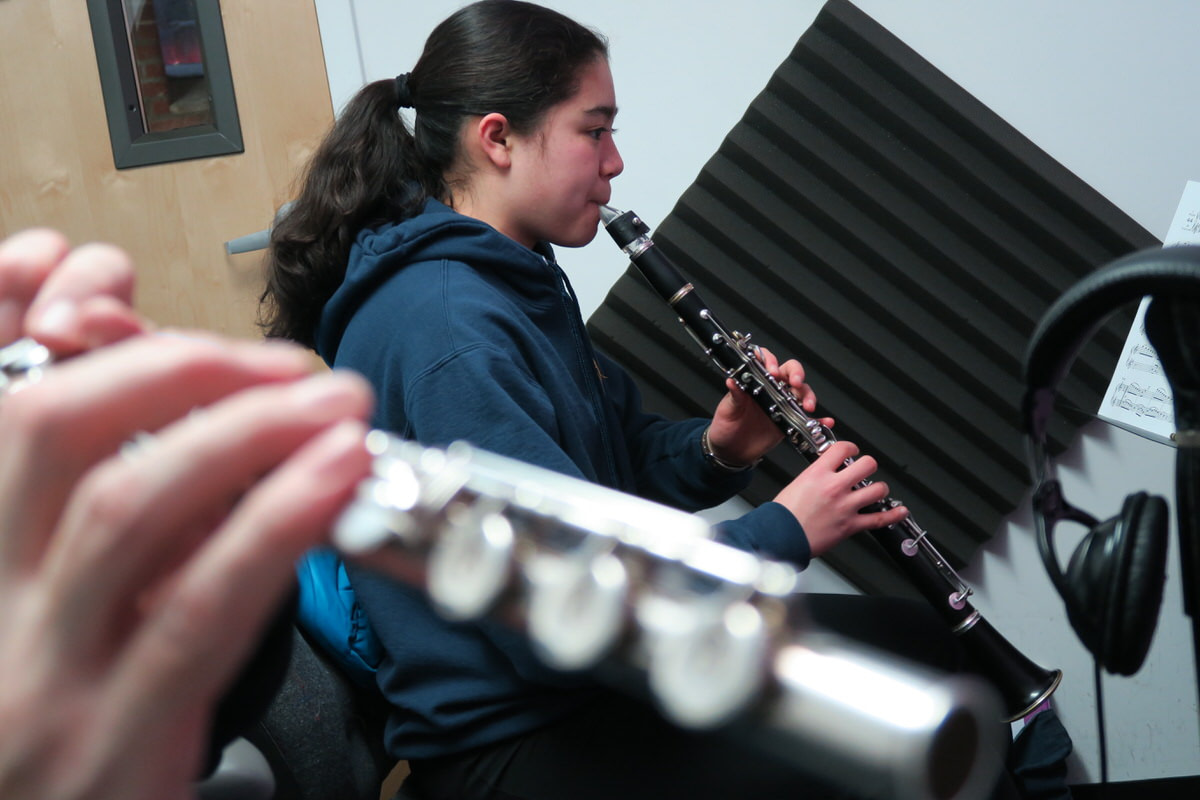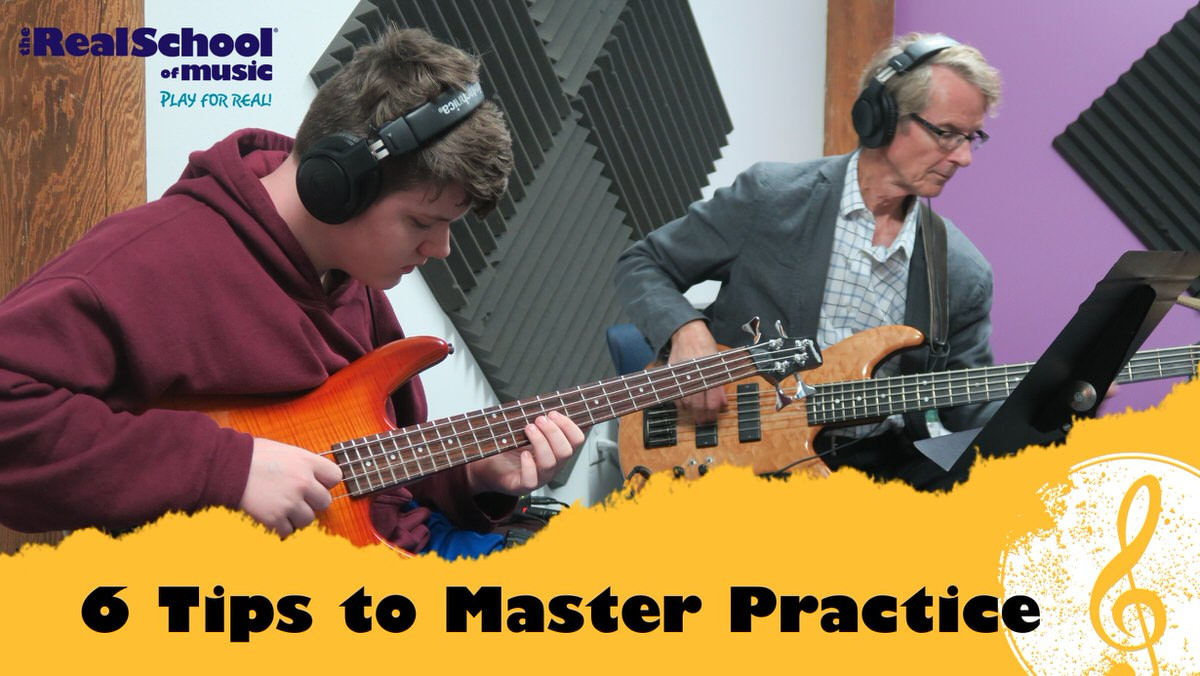If you want to be able to play and sing the music you love, you have to learn it, right? While your music lessons are a great weekly connection with your instructor for growth, taking time to practice outside of your music lessons is the spark you need to keep it going. When you practice on your own, you get to be flexible with the when, where, and how you are practicing as you’re the one in control! Dedicating time on your own for practice will help you progress further and faster with your musical abilities – and seeing that progress will make you fall in love with your instrument even more.
For you parents out there, don’t forget that practice does more than just support the reason you started lessons for your child in the first place. It will instill in them a sense of responsibility, dedication, and self-motivation to show themselves that they can accomplish their goals in any area by simply putting time into those areas of growth.
Sometimes it can be difficult to get into the habit of practice – and sometimes the idea of practicing your instrument is not on the top of your list of favorite things. Well, we’ve got 6 Tips to Master Practice directly from professional music instructors that will help change the way you think about and approach music practice to where it becomes an enjoyable and regular part of your schedule. So let’s hop right into those tips to get you going!


Shift your mindset.
Change the way you think about the time you spend with your instrument to focus on playing, not practicing. This takes a bit of the pressure off of the “practice makes perfect” saying that we have all heard and changes it to “playing makes progress”. Perfect is a lofty goal that can seem out of reach, but progress is as simple as one foot in front of another. For parents, asking your student “Have you played today?” will reinforce this positive mindset as well.
Break it up.
Practicing for 10-15 minutes each day is better than practicing for 70 minutes once a week. Just like a giant piece of pizza is easier to enjoy one bite at a time, music practice is the same way. Instead of setting aside a large block of time to practice, try breaking it down into smaller increments throughout the week. This will help you feel refreshed, stay focused, and enjoy playing each time you sit down.
Make a Game Plan.
Map out a plan that makes time in your week for practice, including making your instrument and any music you are working on easily accessible. Creating a routine that blocks off time for practice and using a chart to keep track of your progress will help your plan become a habit. Build a routine of how practice goes for you, as well. Always start with a short warm up, whether it’s practicing basic scales or some skills you have mastered to get yourself going. Then move on to the rest of your practice session.
Challenge yourself.
Are there parts of the piece that are more challenging for you? After warming up, start with those first and then circle back to parts that you’re already comfortable with after. Focus on moving forward one measure at a time through more difficult pieces and you’ll be amazed at how much you can accomplish. Set goals for yourself that will give you something to work towards as you play. Creating a chart for yourself of your goals can also be a great way to visualize your own progress.
Encouragement is Key.
For students, be kind to yourself and celebrate the little wins along the way. No musician’s journey is the same as another, so remind yourself that you are sharpening your skills and growing your talent every time you pick up your instrument.
For parents, encouragement is so important in keeping practice as something fun and a regular part of the week. Every step forward is progress, so cheer on your student for every step forward you see in their progress. Empower them to make their own choices with what music they practice as much as you can, and sitting in on some of their lessons will help you see what they are trying to accomplish to see where you may be able to help them reach their goals.
Relax and have fun.
Music should bring you joy, so make sure you take time to just enjoy it! Give yourself time to jam out or play some songs you enjoy. Get together with some friends and play together or show your family some of the things you love most about your instrument.


Thank you to our Real School of Music instructors David, Jared, Matt, Don, Jake, and Lily for sharing their top music practice tips! Meet all of our amazing music instructors.
If you’re looking to get started with music lessons or are searching for a greater connection with your music instructor, we invite you to come check out The Real School of Music with a FREE trial lesson to see what the Real School Experience is all about.

